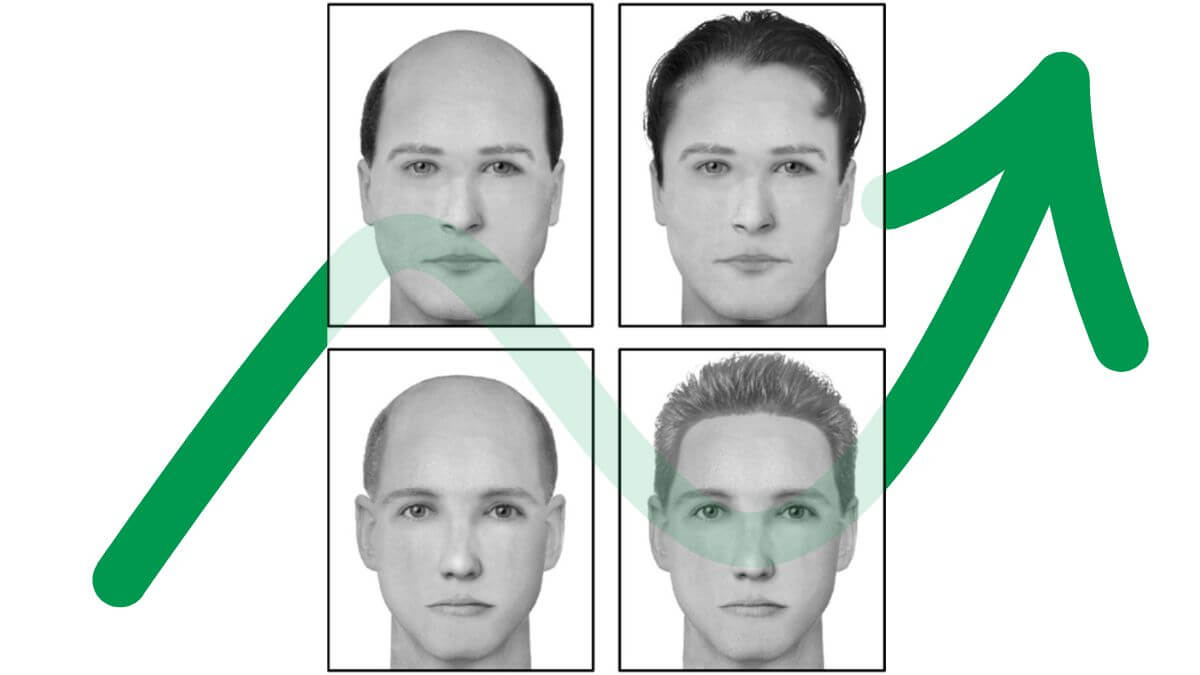For many men, losing hair feels like losing part of themselves. A mirror reflects change; a clogged bathroom drain reveals the seriousness of the hair loss.
However, the deeper wounds are psychological: shame, anxiety, and a nagging fear of being “less than.”
Below are the exact words of my patient explaining his feelings before the hair transplant.
I was in my early 20s when I first noticed my hair loss.
At the time, I was working my tail off, starting my own business, working late nights and early mornings. The exact time I noticed my hair thinning is unclear, but I remember waking up every day and seeing a bunch of hair on my pillows, in the drain after the shower, and then on the comb.
What a sight to start a long day, right? You see, I was a hair guy; my hair was a big part of my charisma (at least that’s how I perceived myself.) I was ashamed of losing hair and started feeling insecure.
Hasan K., 28, Cyprus
In this article, we will explore how hair loss is linked to mental health and whether hair transplantation can improve quality of life and restore confidence.
Table of Contents
Psychology of Hair Loss Patients
Hair loss isn’t merely cosmetic. It is a very essential part of self-identity. So when hair falls, self-esteem may fall too. Some common feelings:
- Anxiety: “What will they think about my thinning scalp?”
- Shame: Want to hide under hats or avoid social events.
- Obsessive behaviour: Checking the mirror often.
- Social Vanishing: Avoiding gatherings, group photos.
A study showed that depression raises hair loss risk by 90%, while hair loss hikes depression risk by 34%. Interestingly, antidepressants have a protective effect on this risk according to the same study.
Stress hormones like cortisol disrupt hair growth cycles, causing a loop: depression fuels hair loss, which deepens the depression.
Is It Harder to Date as a Bald Man?
First of all, let me sum up a very interesting research title Bald and Bad?
106 young women (average age 21) were asked to join the online study aiming to find a relationship between Hair Loss and Attractiveness.
Researchers showed two male faces — one bald, one with hair — and rated them from 1 to 5 for how physically and socially attractive they looked.
This happened in two situations:
- Only face pictures
- Face pictures plus personality traits
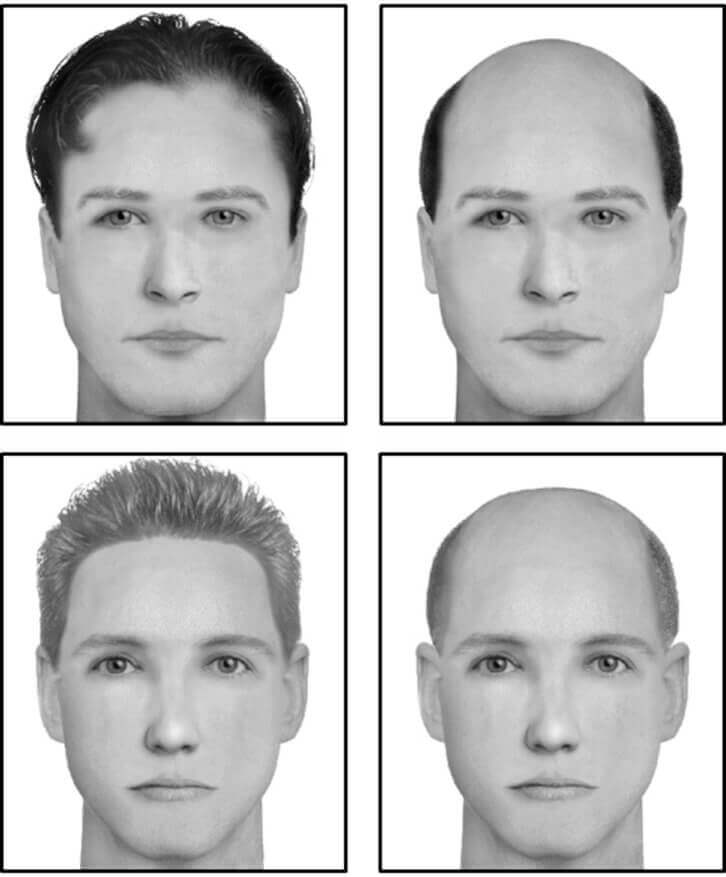
Traits used:
20 personality traits were shown (10 good, 10 bad).
Good: sociable, funny, open-minded
Bad: grim, intolerant, superficial
What they found:
- When only photos were shown: bald men looked less attractive both physically and socially.
- When photos + personality were shown: bald men still looked less physically attractive, but were rated as more socially attractive than men with hair.
👉 Researchers discovered a very important outcome:
Bald men may get a physical appearance disadvantage, but not a social one, if people know their personality. Personal info can change first impressions.
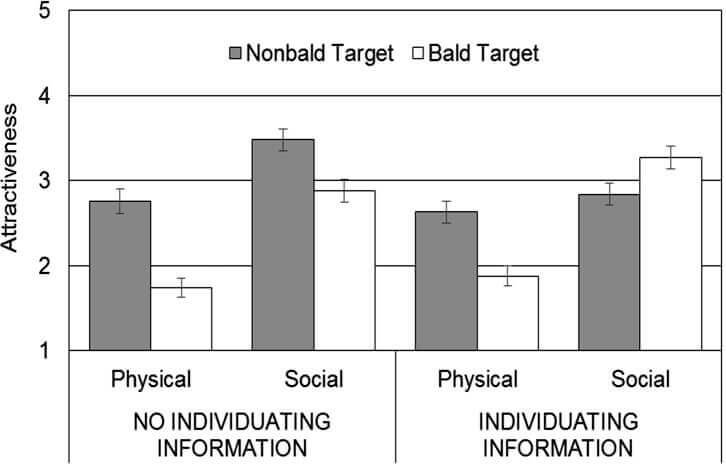
Of course, many women find bald men handsome when they carry confidence and a positive personality. But initial worry stays. Loss of hair sometimes translates to fear of rejection, social anxiety, and decreased motivation to approach new people.
Other Stress Related Hair Loss Disorders
Here are the most common ones:
- Alopecia Areata: It is an autoimmune condition causing patchy hair loss. It can be triggered by high stress. It is a temporary condition.
- Telogen Effluvium: It is a temporary hair shedding after physical or psychological stress (like surgery, a big life change).
- Androgenetic Alopecia: Male-pattern hair loss. It is the most common and chronic. Generally solved with hair transplantation.
These disorders not only change hair, but also intensify emotional distress, making vicious cycle: stress causes more hair loss, hair loss causes more stress.
Can Hair Bounce Back After Depression?
Short answer: Often, yes. Telogen effluvium typically reverses within 6 months of stress easing. You don’t completely lose hair; they’re just stuck in the resting phase.
Therefore, only stress-related hair loss is generally reversible. If underlying stress or depression is managed, hair usually grows back soon. But, patients are recommended to:
- Reduce stress through meditation, exercise, and psychotherapy.
- Follow the Mediterranean diet, which is rich in protein, iron, zinc, and biotin.
- Get topical treatments like minoxidil can help shorten the hair resting phase.
- Sleep properly, aiming for 7–8 hours per night.
However, if hair loss is due to genetic androgenetic alopecia, stress management alone may not be enough. I recommend hair transplant (even second with a gap) as a solution.
Does Hair Transplant Fix the Depression and Restore Men’s Confidence?
Hair transplant is a surgical procedure moving hair follicles from the “donor area” (usually the back of the head) to bald or thinning areas. Behind the head scalp hairs are more shedding resistant and remain so when transplanted to new areas. That’s the secret behind hair restoration surgeries.
Many patients report a significant boost in self-esteem after transplant. The result is obvious, right?
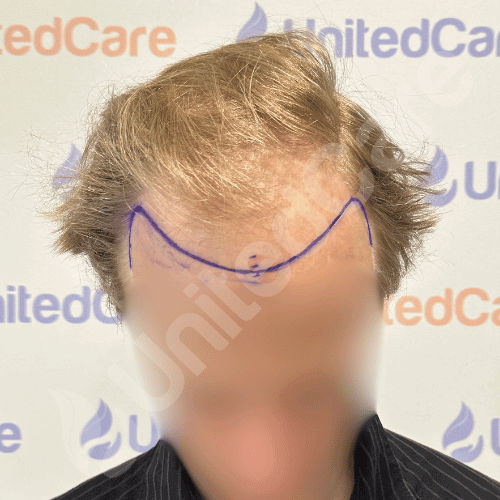
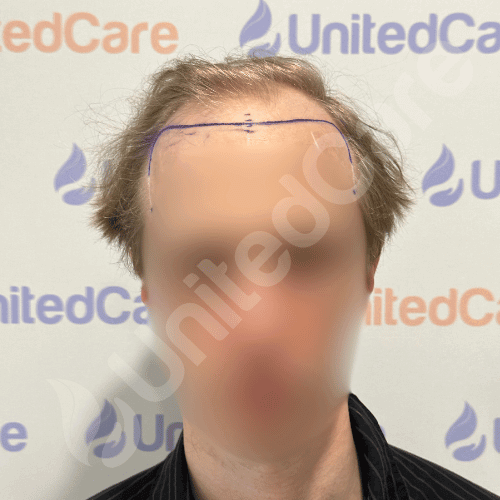
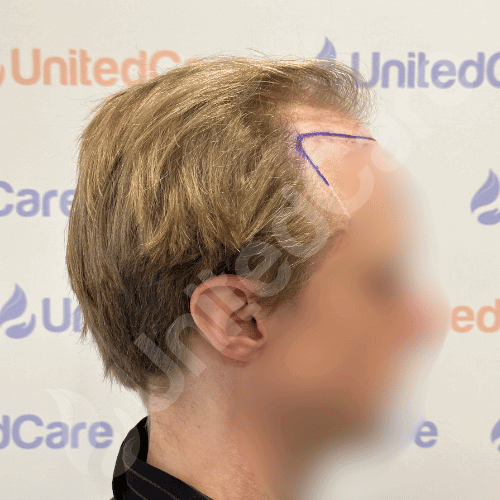
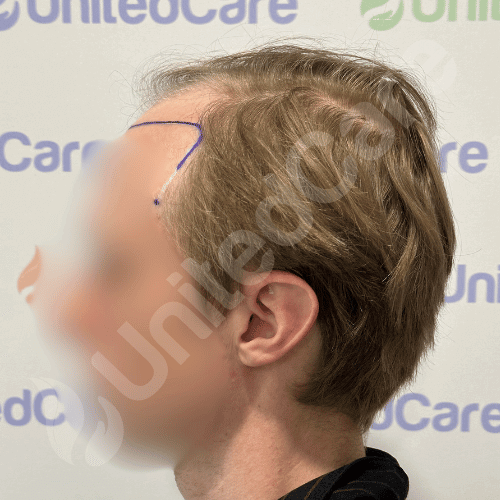
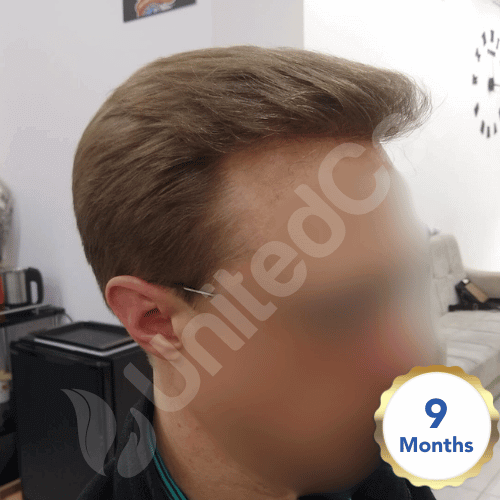
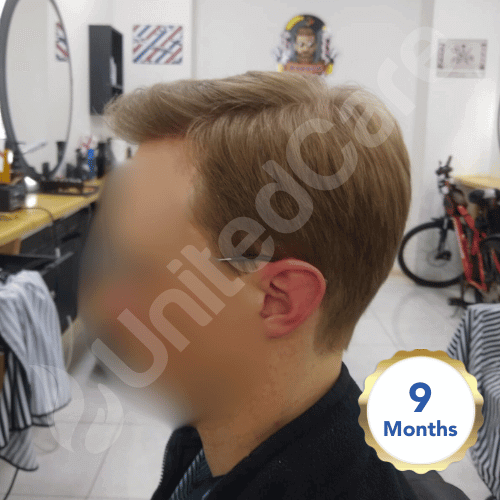
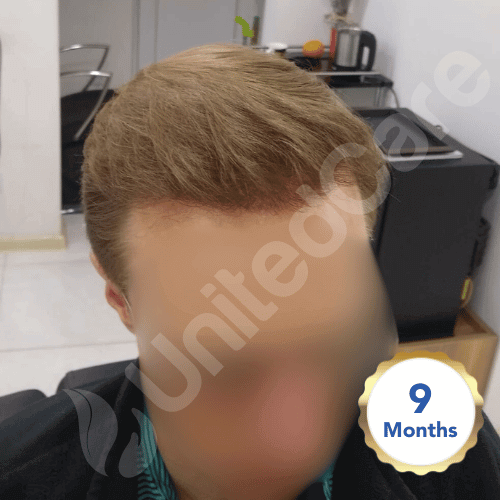
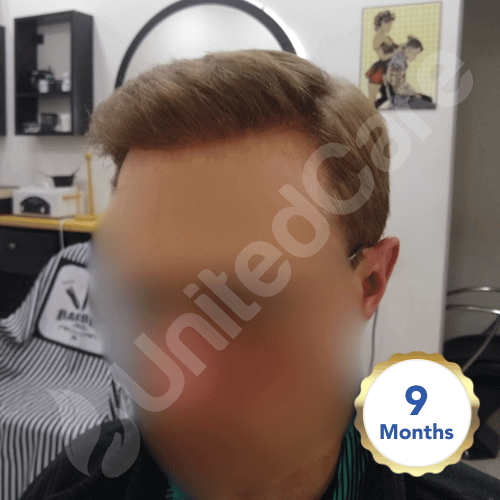
Evidence says yes:
- Self-Esteem Soars: The Majority of transplant patients report improved confidence post-op.
- Life Quality Increase: Men engage more socially, date freely, and feel “reborn” professionally.
However, underlying depression needs separate treatment. Transplants fix hair, not brain chemistry.
In a 2024 study, researchers used the SF‑36 health survey and saw higher scores for mental health and overall life satisfaction, and anxiety dropped a lot. However, depression ratings hardly moved—proof that real recovery needs both surgery and mental care.
What Steps to Take?
If you consider a hair transplant, follow these steps:
- Choose a country in which you can afford a quality hair transplant.
- Find an ISHRS surgeon and look for before/after photos. If possible, make sure that he is a dermatologist whose expertise are skin and hair
- Talk with the doctor in person and ask questions. If the doctor doesn’t allocate you a time before the surgery, probably he won’t be in the surgery day.
- Make sure the surgeon does the surgical parts during the hair transplant surgery.
- Pre-op is very important. Hairless scalp sometimes becomes like unfertile soil and doesn’t support newly transplanted hairs properly. A proper surgeon prepares the scalp for the surgery.
- Stressful life affects how new hairs grow. Try to be stress-free for the best outcome. You may not believe but even wounds are healed very late in stressful patients.
Want your hair to be analyzed by me?
Let’s meet in a Zoom call. Reach my assistant first 👉
Frequently Asked Questions (FAQs)
Does depression really make hair fall out?
Yes, it can. When you have chronic stress or depression, your hair follicles shift into the resting phase too early (telogen effluvium). So instead of growing, hair starts shedding heavily.
How soon after my transplant will I notice improvements in my self‑esteem?
Most patients start to feel more confident around 4–6 months post‑op, as new hairs begin to grow. Full results take up to 18 months, but many report a mood improvement after 6 months.
If I get hair transplant, will it fix my depression?
Hair transplant can hugely boost confidence – studies show over 90% men feel better about themselves after. You might stand taller, take more photos, feel better in dating or job situations. But is it a cure for depression? Not exactly. If your sadness is only about baldness, maybe yes. But often depression is more complex. Think: transplant fixes the mirror, but therapy fixes the mind.
